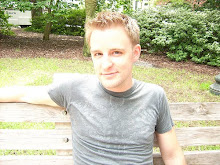Good programmers are proud of their capacity for resolving issues and breaking down problems into their salient parts. Quips about co-workers aside, mental and intellectual health are crucial, and I'll bring that up again later. But that's a very small part of a very large picture.
Physical
I had an undiagnosed medical condition for a couple years that affected my energy, motivation and self-image. I didn't have enough energy to keep a routine of physical exercise. On some days, I struggled to stay awake. Focus was hard to come by.
After a successful diagnosis, proper medication helped tremendously. I still felt, though, that my work performance was suffering. I began exercising.
A note about exercise: I hear people say "Oh, I'm not the exercising type." These are always people who have never had an exercise routine before. Anyone I've ever met who has had a routine and fell out of it (for whatever reason) has spoken fondly of the days when they had a routine and of how good they felt--not just physically, but about themselves. So don't give me that "not the exercising type" crap. Unless you have a doctor's note, get out there, even if you have to start small, like, walking-two-blocks small. You will not regret it.
Anyway, so I started exercising. And it was awful. I was exhausted. Panting, tired, and the next day, painfully sore. But after a couple weeks, I started to really look forward to my exercise. Then I started setting goals. Then I started running barefoot. Now I'm six seconds away from beating my best-ever mile time (I ran my best mile in eighth grade).
More importantly, I feel I'm more productive than ever at work. I've started exercising in the morning before I go into the office, which means I'm alert and ready long before I get there. My body is fully awake, my blood is pumping and my brain is active. I walk into the office with a plan, confident and proud of myself for sticking to my routine.
Family
I also try to resolve issues at home. As a married man, I have to occasionally resolve conflicts, of course, with my wife. And bills have to be paid, the car has to be detailed and the trash has to be taken out. I like to keep up with these things, not letting them pile up, go unresolved, or otherwise weigh on my mind. This prevents me from being distracted during the day by stress.
A note about motivations: Of course, I don't do all of these things to be a better programmer. I do them to have a better life in general. I have noted, however, that they have a huge effect on my performance at work and as a programmer.
Intellectual
I've also started caring for my intellectual health. I've had an addiction to certain web sites that waste my time. Considering the GIGO principle, I shouldn't be reading them, anyway.
I've noted how I used to have far more original ideas years ago. In fact, I used to deliberately avoid reading certain things because I thought they'd spoil my creativity by filling my head with other people's ideas. At some point, I started questioning that theory and started reading obsessively. Now I'm finding that a balance between these is best. Say no to Hacker News. Say yes to Schneier on Security and The Old New Thing.
Attitude
One of the most effective things I've done to be a healthy programmer is made an effort to be more humble:
- Programming is hard.
- Neither I nor anyone else is perfect.
- There exists someone who is smarter than I am.
- There exists a programmer who could do my project better.
- I will never be done improving my craft.
I find that, when I remember these things, I am more open to advice, willing to accept constructive criticism, and curious to learn more, and I feel like I get along with my coworkers better. If I'm willing to listen to what others around me have to say, their knowledge is added to my knowledge. Imagine taking the knowledge from five, ten, fifty good programmers and sticking it in your own head. How can that be a bad thing?
I think a lot of this could be applied to any craft or profession. I, however, am only a programmer. I can say, from first-hand experience, that living and thinking this way has made me a better programmer.

